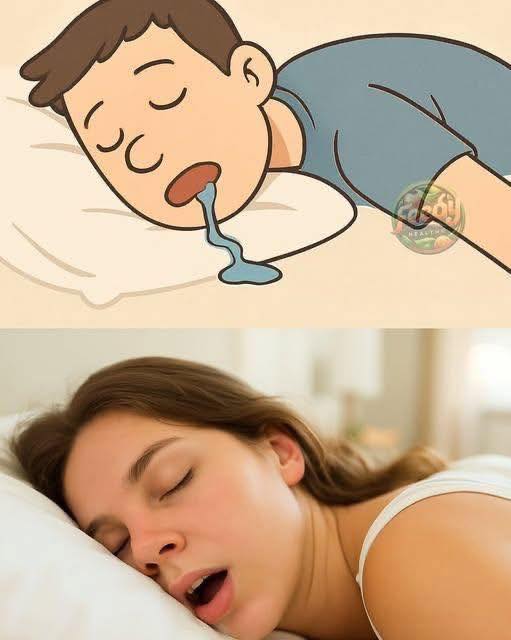
Waking up to a damp pillow can be embarrassing, confusing, or even frustrating. Whether it’s a little droplet at the corner of your mouth or a full puddle, drooling during sleep—also known medically as sialorrhea—is more common than you might think. But why does it happen? Is it something to be concerned about, or just a quirky part of sleep?
Let’s dive into the surprising science behind nighttime drooling—and when it might be a sign of something more serious.
Why Do We Drool at Night?
1. Sleeping Position
The most common culprit behind drooling is your sleeping position. If you sleep on your side or stomach, gravity causes saliva to pool in your mouth and eventually leak out. Back sleepers tend to swallow more effectively while sleeping, which keeps drool at bay.
2. Mouth Breathing
If your nose is blocked due to allergies, a cold, or sinus issues, you’re more likely to breathe through your mouth. This causes saliva to accumulate and escape more easily.
3. Increased Saliva Production
Certain conditions and factors can increase saliva production, such as:
- Acid reflux or GERD
- Tonsillitis or throat infections
- Neurological disorders (e.g., Parkinson’s disease, cerebral palsy)
- Pregnancy or hormonal shifts
4. Swallowing Difficulties
Some people experience reduced muscle control in the throat or mouth during sleep. This limits their ability to swallow saliva efficiently, which then leaks out.
Also Read ; The 10 Things You Should Never Store on Your Kitchen Countertops
This is more common in individuals with neurological conditions but can also occur in people who snore or have sleep apnea.
5. Medication Side Effects
Certain medications—especially antipsychotics, sedatives, or Alzheimer’s medications—can stimulate salivary glands, increasing drool production.
Is Drooling While Sleeping Harmful?
In most cases, drooling is harmless and doesn’t indicate a serious health problem. However, if you experience excessive drooling, especially combined with:
- Snoring or gasping
- Interrupted sleep
- Difficulty swallowing while awake
- Facial muscle weakness
…it may be worth consulting a doctor. It could be linked to sleep apnea, neurological issues, or another underlying condition that requires treatment.
How to Stop or Reduce Drooling in Your Sleep
Here are a few practical tips to manage or reduce nighttime drooling:
✅ Change Your Sleeping Position
Try sleeping on your back, where saliva is more likely to stay in your mouth and be swallowed.
✅ Treat Nasal Congestion
Use nasal strips, decongestants, or a humidifier to clear up your airways and promote nose breathing.
✅ Practice Good Sleep Hygiene
Avoid alcohol and heavy meals before bed, which can contribute to muscle relaxation and reflux, increasing drooling.
✅ Visit a Dentist or ENT Specialist
If your drooling is frequent and affecting your sleep quality, consider a check-up to rule out oral or sinus issues.
✅ Ask Your Doctor About Medications
In severe cases, your doctor may recommend medication, therapy, or even Botox injections to reduce saliva production.
Final Thoughts
Drooling while you sleep might be a little awkward, but it’s usually nothing to worry about. In most cases, it’s related to sleep posture or minor congestion. But if it’s frequent, excessive, or paired with other symptoms, it could be a sign your body is trying to tell you something.
Also Read : These Are the 8 Signs That Indicate You Have Too Much Sugar in Your Body
So the next time you wake up with a wet pillow, don’t just toss it aside—consider whether it’s time to change a habit, or speak to a professional. Your health—and your pillow—will thank you.




3 thoughts on “Do You Wake Up With a Wet Pillow? Find Out Why You Drool While You Sleep”